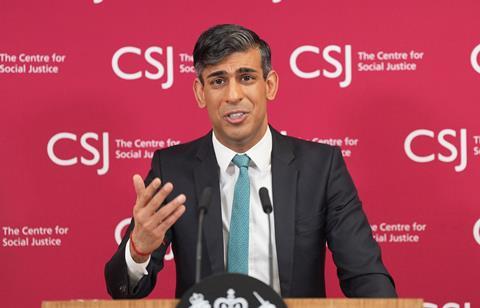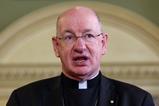The Prime Minister has vowed to tackle what he calls, “Britain’s sick note culture”. In responding, Tony Wilson says Christians are called to be compassionate to those who are sick, but argues the Bible also encourages us to work hard and be wise in not facilitating over-dependence

The Prime Minister’s recent press conference to address the problems of Britain’s “sick note culture” has been met with a mixed response.
He speculated that the three-fold increase in those deemed too ill to work over the last ten years can’t be explained by an increase in genuine sickness. In calling the nation to be more ambitious in assessing people’s potential to work, he explained that regular work can be beneficial for many.
With an increasingly ageing population, there is a growing argument that working-age people need to contribute to the nation’s wealth and that many of us will, necessarily, work for longer.
When times were good and GDP was rising year-on-year, it was easier to fund pensions, benefits and public services such as healthcare, policing and education. But, with a stalling economy, all these things are hard to afford, especially when the country’s infrastructure is in desperate need of improvement - not to mention the calls to spend more money on military defence.
Lowering our expectations
In short, is a generous welfare state now beyond our means? Do we need to lower our expectations of when the state should support those who have fallen on hard times? Have we allowed people to be less concerned about making their own way in life, safe in the knowledge that the government will not let them fall through the cracks?
We are diminished when we fail to fulfil all that God calls us to become
We live in a society where many are still suffering from the effects of the Covid-19 pandemic. The loss of some industries, social media, climate change and global conflicts all cause anxiety. The rising waiting lists for medical treatment mean that many people are waiting for the healthcare that might enable them to become economically active again.
Christians can be found on both sides of this debate. We could usefully spend some time thinking this through from a biblical perspective that both respects the vulnerability of the human condition and recognises the value of work.
What would Jesus do?
Over the weekend, I was sent the below cartoon:

My initial reaction was to smile and take up the stance against the ‘nasty party’ who lack compassion on the sick. But, after a moment of reflection, I thought of Jesus healing Peter’s mother-in-law (Luke 4:38-40).
The moment she was healed, she got up and started serving the apostles. Jesus never, as far as we have it recorded in the Gospels, told her that she was now fit for work, but she seemed to quickly come to that conclusion herself. It reminds me of the Salvation Army strap-line: “saved to serve”. There is something about an encounter with grace that demands we respond with gratitude.
While we must always remain alert to the concern that Jesus shows for the poor, the sick and the needy, the Bible also reminds us of our duty to take personal responsibility for ourselves and our dependants.
In 2 Thessalonians 3:6-15, Paul makes a strong case against idleness, teaching that anyone who wishes to eat should also work. He also gives tough love when writing to Timothy about how to support those in need in the Church. It’s clear that we should first look after those in need in our own families, and then be rather cautious about how to support other people in case we make them unnecessarily reliant on our aid (see 1 Timothy 5:3-16).
It’s a fine line to apply in a modern society that is rather broken. The state should be there to ensure a uniformity of provision that is more universal and secure than anything the charitable sector can offer. The idea that only the ‘deserving poor’ should receive assistance lacks the shocking grace we encounter from God as Christians.
Work hard
But Paul’s teaching shows he has a firm grasp of the human condition. Frankly, if I’m enjoying a few extra minutes in bed and I hear my wife feeding the dog, unloading the dishwasher and making the coffee downstairs, I am often happy to pull up the duvet rather than rush to help.
There is something that inclines us to sit back when we know someone will do something for us. Next time your church service ends, just take a look around at who stacks the chairs, derigs the sound desk and washes the cups.
The Bible reminds us to take responsibility for ourselves and our dependants
An overly-generous state can lead people to make less of themselves than their capabilities would allow, and we are diminished when we fail to fulfil all that God calls us to become. We must never forget that the poor will always be with us (Matthew 26:11) and that Jesus calls us to be generous in our support.
It would be hard to summarise this better than Paul in 1 Thessalonians 5:12-14: “But we appeal to you, brothers and sisters, to respect those who labour among you, and have charge of you in the Lord and admonish you; esteem them very highly in love because of their work. Be at peace among yourselves. And we urge you, beloved, to admonish the idlers, encourage the fainthearted, help the weak, be patient with all of them.”






































1 Reader's comment